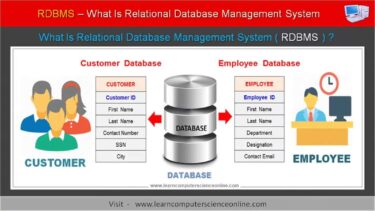Over the years, the landscape of database administration has undergone significant evolution, and SQL Server has risen as a leading selection among relational database management systems. Whether you represent a business organization or an individual considering the hosting of your SQL Server databases, it is imperative to gain a comprehensive understanding of the intricacies involved in this hosting endeavor. In this article, we embark on a thorough journey into this realm, offering our readers an all-encompassing and precise handbook on this very topic.
Overview of SQL Server Hosting and Its Potentials:
SQL Server hosting has emerged as a transformative solution for businesses aiming to handle their SQL Server databases without getting entangled in the intricacies of in-house server infrastructure setup and maintenance. Rather than navigating these challenges internally, businesses can capitalize on the expertise of dedicated third-party providers who have honed their skills in offering impeccable SQL Server hosting experiences.
In-Depth Look at the Advantages of SQL Server Hosting:
- Financial Prudence: A standout advantage of embracing SQL Server hosting is the financial savings it brings. Businesses can circumvent the often hefty initial costs tied to purchasing and overseeing physical servers. Such savings enable companies to distribute their capital more strategically, thereby fostering more sustainable growth;
- Adaptability to Needs: The adaptable nature of SQL Server hosting stands out as its unique selling proposition. It grants organizations the agility to tailor their resource allocation based on the ever-changing requirements. This dynamism ensures that businesses can upscale or downscale without being shackled by hardware constraints. Such adaptability becomes crucial, especially for enterprises that experience periodic data consumption spikes;
- Unwavering Reliability: SQL Server hosting companies don’t just offer a service; they promise reliability. A majority of them take data integrity to heart, providing solutions that promise continuous availability. To further fortify data protection, these providers often incorporate periodic data backups, thereby mitigating risks and laying the foundation for uninterrupted business operations;
- Expertly Managed Services: Entrusting your SQL Server needs to a hosting provider means tapping into a reservoir of expertise. These providers are backed by seasoned experts responsible for several facets of SQL Server management. From bolstering security protocols and updating patches to implementing system upgrades and regular maintenance checks, these professionals ensure optimal server health. Consequently, in-house IT teams can channel their energies toward more value-driven tasks, confident that the SQL Server is in adept hands.
Guidelines and Insights for Optimal Selection:
- Credibility Check: When zeroing in on an SQL Server hosting partner, gauge their past performance, focusing on reliability and data protection standards. Providers that present SLAs, which vouch for consistent uptime and data accessibility, should be given preference;
- Assessing Scalability: The hosting provider’s scalability provisions need scrutiny. Opt for a service plan that provides the liberty to modify resource allocation, ensuring that growing database requirements are aptly met;
- Data Protection Protocols: It’s pivotal to ascertain that the chosen hosting provider has a comprehensive backup and disaster recovery blueprint. Periodic backups not only secure data but also offer peace of mind in the face of unforeseen setbacks;
- Leveraging Managed Services: Exploit the managed services that hosting providers extend. Such services can considerably lighten the workload of internal IT departments, paving the way for streamlined SQL Server management and operations.
Different Types of SQL Server Hosting
SQL Server hosting comes in various flavors, each catering to different business needs and preferences. Here’s a breakdown of the diverse types of SQL Server hosting options:
Shared Hosting:
Overview: Shared hosting involves multiple clients sharing a single server. It is the most budget-friendly option, making it suitable for small to medium-sized businesses.
Pros:
- Cost-effective;
- Low initial investment;
- Managed by the hosting provider.
Cons:
- Limited performance, especially for larger databases;
- Limited control over server resources.
Dedicated Hosting:
Overview: Dedicated hosting provides an entire server exclusively to a single client. This configuration offers enhanced performance and security but comes at a higher cost.
Pros:
- High performance and reliability;
- Complete control over server resources;
- Ideal for resource-intensive applications.
Cons:
- Higher cost compared to shared hosting;
- Requires technical expertise for server management.
VPS Hosting (Virtual Private Server):
Overview: VPS hosting partitions a physical server into multiple virtual ones, each with dedicated resources. It strikes a balance between shared and dedicated hosting.
Pros:
- Better performance compared to shared hosting;
- Cost-effective compared to dedicated hosting;
- Greater control over the server environment.
Cons:
- Limited scalability compared to cloud hosting;
- Technical knowledge may be required for customization.
Cloud Hosting:
Overview: Cloud hosting leverages virtualized infrastructure to host databases. It offers remarkable scalability and flexible pay-as-you-use pricing models.
Pros:
- Highly scalable, ideal for businesses with fluctuating resource demands;
- Pay-as-you-use pricing reduces costs for unused resources;
- Robust redundancy and failover options for high availability.
Cons:
- Costs can increase with resource usage;
- Requires monitoring to prevent unexpected billing spikes.
Managed Hosting:
Overview: Managed hosting providers not only host your SQL Server but also handle all management aspects, including updates, security, and backups.
Pros:
- Minimal IT involvement in server management;
- Expert handling of security and maintenance;
- Ideal for businesses seeking hassle-free hosting solutions.
Cons:
- Typically, higher cost compared to unmanaged hosting options;
- Limited customization options for advanced users.
Factors to Consider When Choosing SQL Server Hosting
Are you currently in the midst of choosing the ideal SQL Server hosting solution for your business venture or project? The choice you ultimately make at this juncture holds the potential to exert a significant influence on your database’s efficiency, safety, expandability, uninterrupted operation, and overall prosperity. Let us embark on an exploration of the crucial aspects that warrant your attention and understand how they can mold your decision:
1. Performance
When it comes to database hosting, performance is paramount. Your database’s size and transaction volume play a significant role in determining your performance needs. Here’s what you should keep in mind:
- Database Size: Consider the current and expected size of your database. If it’s large, you’ll need a hosting solution that can handle the load efficiently;
- Transaction Volume: The number of transactions your database processes daily is crucial. High transaction volumes demand robust performance.
Recommendations for Optimal Performance:
- Choose dedicated or cloud hosting, as these options often offer the best performance;
- Consider SSD storage for faster data retrieval;
- Look for hosting providers with a track record of high database performance.
2. Security
Your SQL Server database likely contains sensitive and critical information. Therefore, robust security measures are non-negotiable:
- Firewall Protection: Ensure your hosting provider offers firewall protection to shield your database from external threats;
- Encryption: Data encryption at rest and in transit is vital to protect your data from unauthorized access;
- Intrusion Detection Systems: Implement intrusion detection systems to identify and respond to potential security breaches;
- Regular Security Updates: Hosting providers should regularly update and patch their systems to address emerging security vulnerabilities.
Tips for Enhancing Security:
- Use strong, unique passwords for your SQL Server login;
- Implement role-based access control to restrict database access;
- Regularly audit and monitor database activity for suspicious behavior.
3. Scalability
Your business is not static; it’s likely to grow over time. Therefore, your chosen SQL Server hosting solution must be scalable. Consider these aspects:
- Vertical Scalability: Can you easily upgrade your resources (CPU, RAM, storage) as your database’s needs grow?;
- Horizontal Scalability: Does the hosting provider offer options for distributing your workload across multiple servers to accommodate increasing demand?
Scalability Best Practices:
- Choose a hosting solution that allows for seamless scalability without major disruptions;
- Monitor your database’s performance and scale resources proactively to avoid bottlenecks.
4. Uptime
Downtime can spell disaster for your business, leading to lost revenue and customer trust. To ensure maximum uptime, follow these guidelines:
- Uptime Guarantees: Opt for hosting providers that offer high uptime guarantees, typically exceeding 99%;
- Redundancy: Check if the hosting infrastructure includes redundancy for critical components like power and network connections.
Maintaining Uptime:
- Set up automated monitoring to promptly detect and respond to downtime incidents;
- Implement failover and load balancing strategies to minimize downtime impact.
5. Support
When issues arise, and they inevitably will, having access to reliable customer support is a lifesaver, especially for businesses running mission-critical applications. Consider the following:
- 24/7 Support: Ensure the hosting provider offers around-the-clock customer support;
- Response Time: Check the provider’s average response time for support requests;
- Technical Expertise: Evaluate the technical expertise of the support team to address complex SQL Server issues.
Getting the Most from Support:
- Familiarize yourself with the provider’s support channels and procedures;
- Establish communication protocols for urgent issues to minimize downtime.
The Process of Migrating to a SQL Server Hosting Provider
Once you’ve chosen the right SQL Server hosting provider, the migration process is the next critical step. Here’s a comprehensive overview of the migration process:
1. Planning
- Identify your migration requirements and goals;
- Select the suitable hosting type (e.g., shared, dedicated, cloud) and the hosting provider;
- Develop a migration plan, including timelines and responsibilities.
2. Backup
- Create a complete backup of your SQL Server database before initiating migration;
- Verify the integrity of your backup to ensure data consistency.
3. Setup
- Set up the hosting environment to match the original SQL Server settings. This includes configuring security, networking, and server parameters;
- Ensure all necessary software and dependencies are in place.
4. Data Transfer
- Migrate your database to the new environment using one of the following methods;
- Backup and restoration;
- Utilize migration tools or scripts;
- Monitor the data transfer process for any errors or anomalies.
5. Testing
- Thoroughly test the migrated database for functionality, performance, and data integrity;
- Address any issues or discrepancies discovered during testing.
6. Go Live
- Once you’re satisfied with the testing results, redirect all traffic and applications to the new hosted server;
- Monitor the system closely during the initial post-migration period to address any unforeseen issues promptly.
Sustenance and Optimal Protocols for Systems:
System sustainability isn’t just a one-time task but an ongoing responsibility. The process doesn’t conclude once migration is completed. To ensure that systems remain functional, efficient, and secure, it’s crucial to adhere to certain guidelines and protocols.

Consistent Data Safeguarding:
Safeguarding valuable data should be a top priority. Implementing a consistent and regular backup system ensures that data is protected against unforeseen challenges, like technical malfunctions or cyber threats. Schedule backups at consistent intervals, making sure there’s a balance between frequency and system overhead. In addition, it might be wise to consider both local and cloud-based backups for redundancy and ease of data retrieval in emergencies.
Prioritizing System Security:
Cyber threats are ever-evolving, making it crucial for businesses and platforms to stay vigilant. Regularly updating the system with the most recent security patches ensures that any identified vulnerabilities are addressed. It’s also recommended to conduct periodic security audits and assessments to ensure that the implemented security measures are robust and effective against contemporary threats.
Vigilant System Health Checks:
It’s not enough just to have a system in place; its performance needs to be at its optimum. Utilize advanced monitoring tools that offer insights into the health and performance of databases. These tools can identify potential bottlenecks, lagging areas, or other challenges that might impede system efficiency. Quick detection leads to prompt action, ensuring minimal disruption and maximum uptime.
Proactive Resource Augmentation:
The growth of a business often comes with increased data and user demands. To ensure the system keeps pace with the expanding needs, it’s essential to scale resources proactively. This could mean adding more storage, enhancing processing power, or integrating more advanced solutions. Always analyze trends and forecasts to predict when scaling might be necessary, and plan accordingly to prevent any drop in system performance or user satisfaction.
Conclusion
SQL provides businesses with a streamlined approach to overseeing their SQL Server databases, eliminating the need for in-house infrastructure management. By delving into the various hosting options at their disposal and carefully assessing crucial variables, enterprises can make a well-informed choice that harmonizes with their specific needs. The consistent upkeep of these databases, coupled with a commitment to industry best practices, guarantees the seamless and effective operation of the database system.










